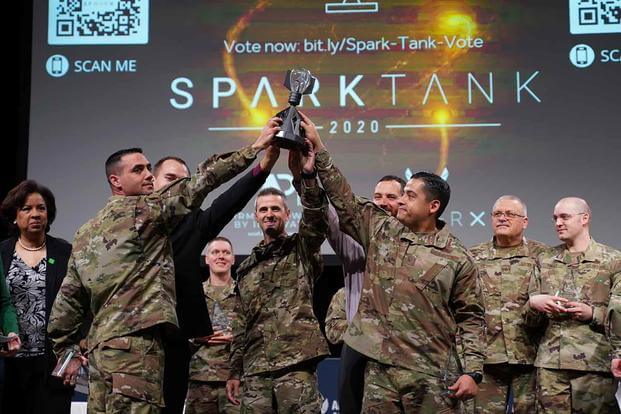Lt. Col. Stewart "PR" Parker is an active-duty officer assigned to Air Force Special Operations Command. The views expressed are those of the author and do not reflect the position of the Air Force, the Department of Defense or the U.S. government.
Air Force Chief of Staff Gen. Charles Q. Brown's recent warning to the service was unequivocal: Accelerate change or lose.
As America's adversaries gain strength, the service is ceding most of its space capabilities to the newly formed Space Force; many airpower prophecies remain unfulfilled; and the airpower revolution itself has been declared dead. Though there have been proposals to revitalize the service by retiring older aircraft in favor of newer models, what the Air Force really needs for its fast-approaching 73rd birthday are new ideas and a relentless surge of airman-driven innovation.
Even a costly realignment of major commands might not help; lessons from the private sector reveal new organizational forms routinely fail to achieve sought-after results. The Headquarters Air Force staff is optimized to preserve status quo, and expecting it to radically adapt is akin to asking a pig to slaughter itself. Yet there are too many examples -- from democracy's growing threats identified in the 2018 National Defense Strategy to poor racial representation and toxic leadership -- that remind airmen why the status quo is alarmingly unacceptable and why airman-driven change is imperative.
Airmen can accelerate positive change immediately, even before Gen. Brown unveils a fully detailed vision for a better service. In line with Air Force doctrine, they must “take the initiative in tasks, and self-manage rather than wait for guidance."
Breaking with norms is the new normal. The Air Force requires honest dissent and each airman’s appraisal of whether their limited time and resources are used to greatest effect. Although "regulations" identified in the oath of enlistment are considered legal orders, success in a dynamic global environment requires more than rigid adherence to innumerable manuals and instructions. The service can nurture airman-driven innovation by delegating authority and reducing top-down written guidance. Policies begin to expire the moment they are enacted, because they address limited facts in one moment of time and fail to consider future unintended consequences.
Further catalyzing change requires overhauling obsolete education and training. Adaptability is indispensable in a modern force, only by learning to think critically in complex situations can airmen prevail against wicked problems that resist hypothesis-testing. Renewing stagnant professional military education is necessary to challenge historic assumptions about airpower and airmindedness. Basic military training must foster creativity instead of merely teaching new airmen “what to do and how to do it”. If airmanship is a process, then an adaptation of President Dwight D. Eisenhower's timeless maxim of military planning should be: The process is nothing, but processing is everything.
Compelling change does not require wildly new ideas; it may simply be stopping something old. “Time-honored” traditions are invented. Most protocols, customs and courtesies are arbitrary, especially rules of grooming and dress. The innate desire to create a uniform image of airmen can no longer trump the service's need to become more diverse, inclusive and, ultimately, more effective. Limiting "what right looks like" to an inherently subjective professional standard could reduce the service's ability to compete for talent needed to overcome bureaucratic resistance to modern technology. As Sir Arthur "Bomber" Harris proclaimed, "No tradition is worth having in a fighting service, except a tradition of success."
At 73, the Air Force doesn't just need new aircraft; it needs new ideas. Strategic competition requires more than additional squadrons and incremental improvement on old paradigms; it mandates entirely new thinking. Updating training and education and minimizing written guidance will develop airmen who can think for themselves. Each airman can do their part to reinvigorate the service by embracing innovation as a personal responsibility. The best way to celebrate the Air Force’s birthday is to accelerate change with bold, audacious new ideas -- or lose.
-- The opinions expressed in this op-ed are those of the author and do not necessarily reflect the views of Military.com. If you would like to submit your own commentary, please send your article to opinions@military.com for consideration.












